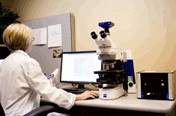Despite Setbacks, Autism-Vaccine Research Continues

The recent Supreme Court ruling shielding pharmaceutical companies from vaccine injury liability is a devastating blow for countless families who have fought many years attempting to link their children’s autism to vaccinations. While the decision was entirely predictable, it should be emphasized that much more research is still needed before vaccine manufacturers get a free pass and we completely shut the door on the autism-vaccine debate.
Additionally, the disgracing of Andrew Wakefield is purported to have ended the controversy once and for all, but it has only served as a distraction from the fact that previous studies have primarily focused on the safety of individual vaccines, not on the interaction between the vaccines and their synergistic possibilities, particularly in vulnerable scenarios such as premature births or low birth weight.
Fortunately, such research is currently ongoing, undertaken by the Thoughtful House Center for Children in Austin, Texas, a non-profit organization dedicated to helping children with developmental disabilities. While Dr. Wakefield at one point contributed to the study, he resigned from the center in February, 2010.
Led by Dr. Laura Hewitson, A primate model of gut, immune, and central nervous system interaction in response to childhood vaccines began in 2002 as a 5-year collaborative study with researchers at the University of Pittsburgh to assess the role of childhood vaccinations in regressive autism. Using the Rhesus Macaque (Rhesus Monkey) as the most appropriate non-human primate model, researchers explored the neurodevelopmental, gastrointestinal and immunologic effects of combined infant vaccine regimens. This model was able to uniquely provide insights into disease mechanisms and causes, with the ability of being transferred to subsequent studies on treatment and
prevention.
Because of the success of the pilot study, the second phase is already in progress. Working in collaboration with The University of Washington in Seattle, researchers are honing in on which vaccines or vaccine combinations result in behavioral and gastrointestinal impairments in infant male monkeys to try and identify any synergistic effects. The projected completion of the study is sometime in 2012.
Here are the results of the Phase One study:
Thoughtful House is to be commended for advancing our knowledge of vaccines with the end-goal of making them safer. Dr. Wakefield’s previous involvement should have no bearing on the outcome and in fact, any findings will surely be heavily scrutinized, helping to maintain the integrity of the results.
Whatever one’s opinion is on the autism-vaccine controversy, the quest for the truth should be the primary objective and research should not be clouded by biased reports from the media or elsewhere. Additionally, more studies are needed by organizations and researchers that do not have a vested interest in the outcome of the results, whether positive or negative. We owe our children and future generations nothing
less.

